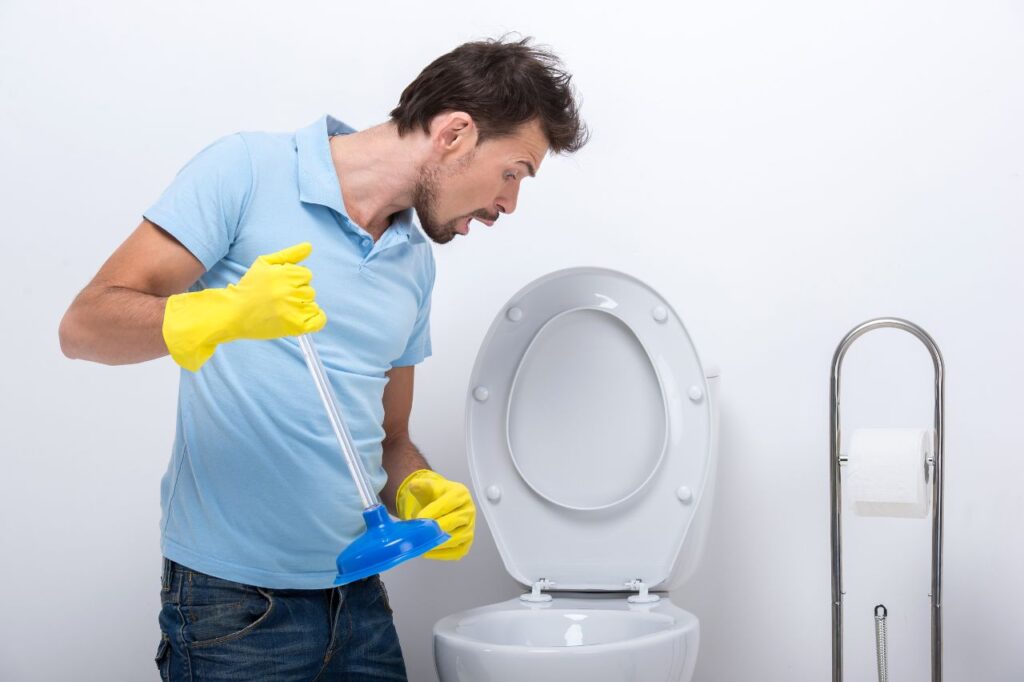If you have a septic tank, you may be wondering if toilet paper can safely decompose in it. While some types of toilet paper are designed to break down quickly, others may not be as septic-friendly. Here’s what you need to know about toilet paper and septic tanks.
What happens to toilet paper in a septic tank?
When toilet paper enters a septic tank, it begins to break down through a process called biodegradation. This process is aided by the bacteria that naturally occur in the tank. However, not all toilet paper is created equal. Some brands are designed to break down more easily than others, and some may contain additives that can interfere with the biodegradation process. It’s important to choose a toilet paper that is labeled as septic-safe to ensure that it won’t cause problems in your septic system.
Is all toilet paper septic-safe?
No, not all toilet paper is septic-safe. Some brands may contain additives or be made from materials that are more difficult to break down in a septic tank. It’s important to look for toilet paper that is specifically labeled as septic-safe to ensure that it won’t cause problems in your septic system. Additionally, using too much toilet paper at once can also cause issues in your septic tank, so it’s important to use only what is necessary.
How can you tell if your toilet paper is safe for septic tanks?
Look for toilet paper that is specifically labeled as septic-safe. These products are designed to break down more easily in septic systems and are less likely to cause clogs or other issues. Avoid using toilet paper that is labeled as ultra-soft or ultra-strong, as these products may contain additives that can make them more difficult to break down. It’s also important to use only the amount of toilet paper that is necessary to avoid overloading your septic system.
What are some alternatives to traditional toilet paper for septic systems?
If you’re looking for alternatives to traditional toilet paper for your septic system, there are a few options to consider. One option is to use a bidet or a bidet attachment, which uses water to clean instead of paper. Another option is to use reusable cloth wipes, which can be washed and reused. However, it’s important to note that cloth wipes should be washed separately from other laundry to avoid spreading bacteria. Finally, some people choose to use natural materials like leaves or moss, but it’s important to make sure these materials are safe and won’t cause any damage to your septic system.
How often should you have your septic tank pumped to avoid issues with toilet paper and other materials?
It’s recommended that you have your septic tank pumped every 3-5 years to avoid any issues with toilet paper or other materials. However, the frequency of pumping may depend on the size of your tank, the number of people in your household, and your water usage. It’s important to have your tank inspected regularly and to follow proper maintenance guidelines to ensure that your septic system is functioning properly. If you do experience any issues with your septic system, it’s best to contact a professional for assistance.
Conclusion
In conclusion, it is important to be mindful of the type of toilet paper used in septic systems. While biodegradation is a natural process, certain additives in some toilet paper can interfere with this process. To ensure the safety of septic tanks, it is recommended to use toilet paper specifically labeled as septic-safe and avoid ultra-soft or ultra-strong products. Other alternatives to traditional toilet paper include bidets, reusable cloth wipes, and natural materials like leaves or moss. Regular maintenance and inspections of septic systems are also crucial to avoid any issues, and professional assistance should be sought if any problems arise.

